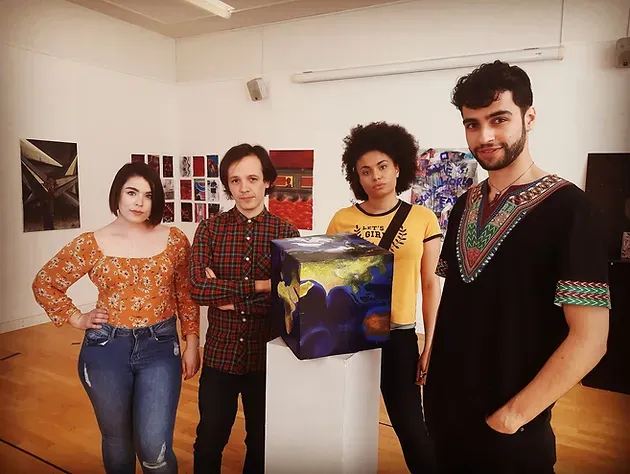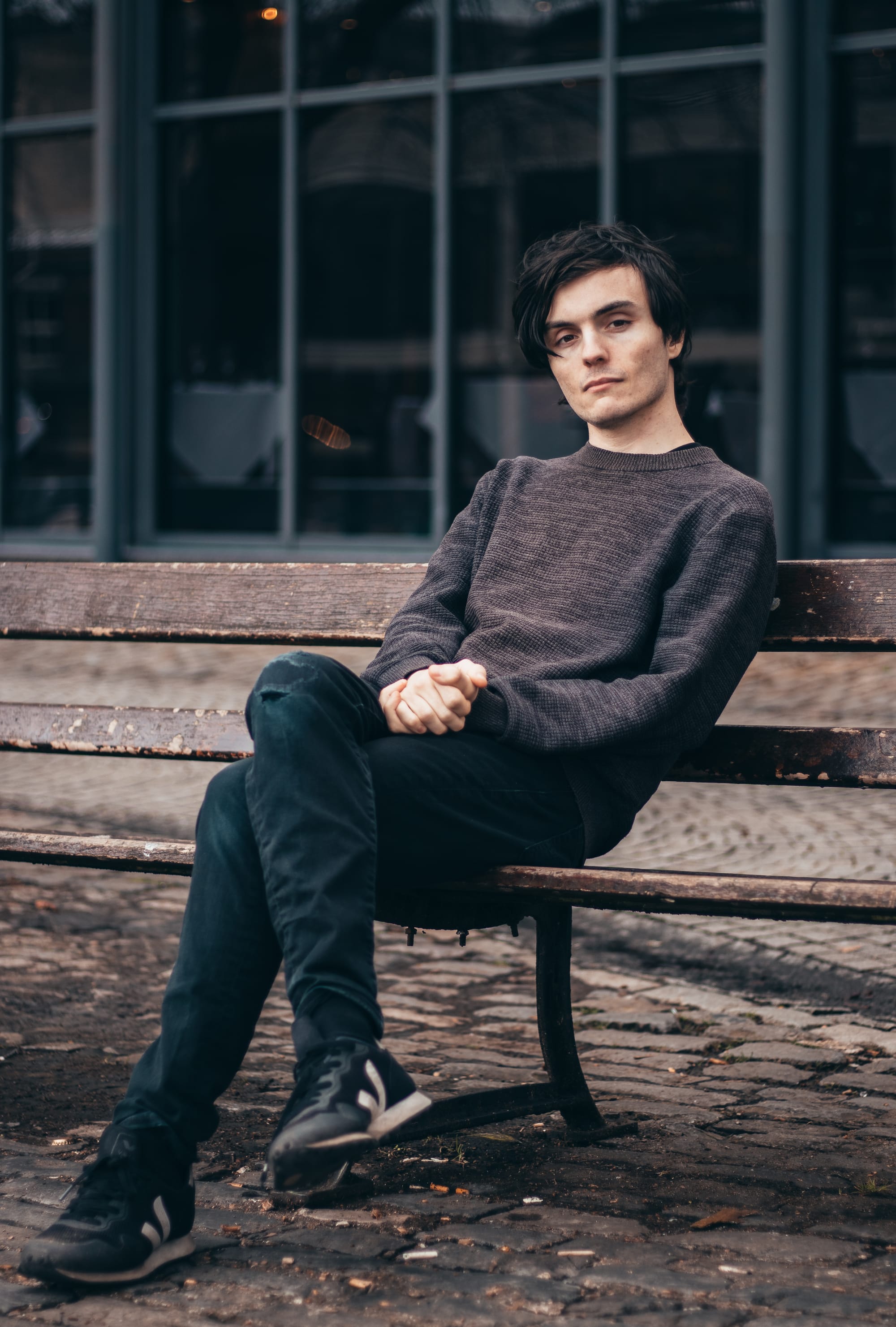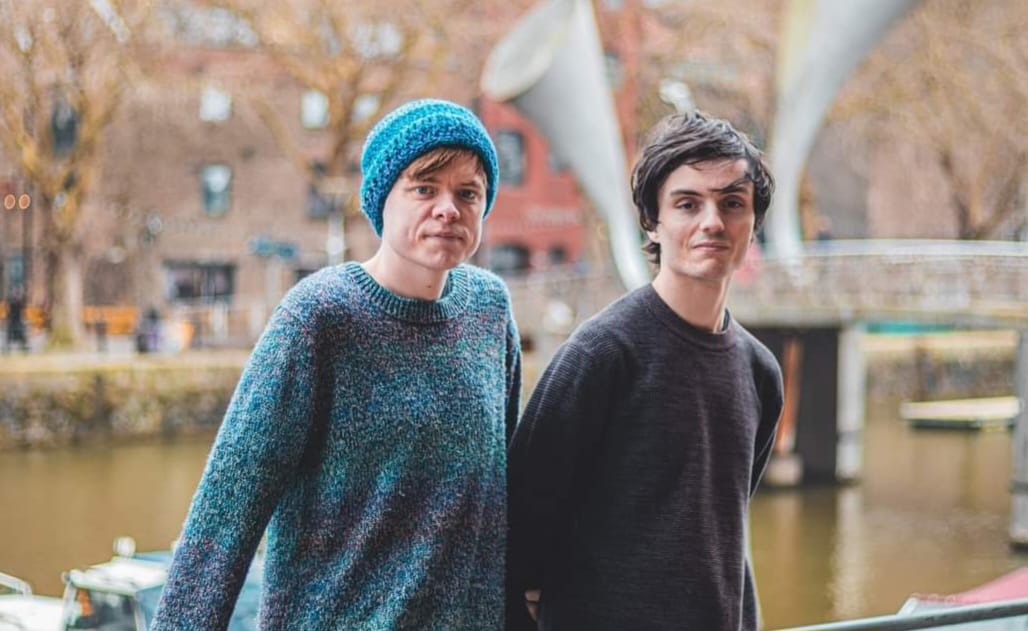By Milan Perera, Deputy Editor
The philosopher Confucius uttered, ‘It is better to light a candle than to curse the darkness.’ This is the maxim the Bristol-based creative duo, George Harold Millman and Owen B Lewis, have adopted in view of their pilot TV drama Square.
It has been in the pipeline for nearly six years. After numerous set backs along the way they are eager to get the project off the ground.
It is not hyperbole to say that George Harold Millman and Owen B Lewis are a power couple in Bristol art scene. They have collaborated on various projects from film, musical, stage plays, books to audiobooks. For them issues matter. And more importantly turning a spotlight on them and starting a discourse.

Square is set in Bristol and follows the lives of a group of left-wing activists and aims to feature under-represented voices. Bristol has built up a reputation as a bastion of protest and activism since the Bristol Riots of 1831. Its independent creative spirit has been the fertile loom for many artists over the years and Millman and Lewis are prepared to take that mantle.
The uniqueness of Square lies in being able to absorb the geo-political, social and economic realities of the day seamlessly into the drama. On this immediacy and relevance to the zeitgeist, Millman said: ‘The nature of Square is that although it’s about ordinary people living ordinary lives, there is always the backdrop of the sociopolitical state of affairs.’

’The longer we’ve worked on it, the more relevant it has become. When we started, Theresa May was the Prime Minister, Brexit was all any politician could talk about, lockdown hadn’t been heard of, the statue of Edward Colston was still in the centre of Bristol, and movements like #metoo, Black Lives Matter and Just Stop Oil were in their infancy. We’ve watched the world change and develop, and written every new event into Square. Square is a show for now, and we hope you think so too.’
Representation is important for them. It is not a shiny buzzword or a performative gesture. They often cast actors with disabilities, not disabled actors. They feel that the narrative around disability is often negative and counter productive in the wider discourse of inclusivity. One of the actors who featured in the original pilot of Square, Ed Larkin, has gone on to carve a successful career in the West End. The duo could not be any happier for him.
They also shed some light on the cliquish nature of the industry which makes it harder for young and upcoming writers to break into the industry without ‘knowing the right people’. For the past six years they have met several industry leaders and ‘play makers’. They confess their naïveté and idealism at the beginning of the project as they were blissfully oblivious to the internal machinations of the industry.

They have got used to the usual sugar-coated negatory responses and decisions: ‘Show, don’t tell’, ‘We do not accept unsolicited submissions’, ‘I don’t think you actually need an agent’, ‘It’s very competitive, everyone wants the same thing’, ‘Have you looked on BBC Writers’ Room?’ and that overused cliché – ‘Well, you know… it’s difficult for everyone. Keep trying!’
As late as 2023, they went to a public talk in Bristol by the Drama Commissioning Editor of a TV channel (who they have been trying to get an audience with for several years). They were no longer the fresh-faced enthusiasts they had been a few years earlier, they were there to challenge the system and the status quo. They attended the talk as pragmatists.
According to Lewis and Millman, the person delivering the talk provided an ample amount of information, including a PowerPoint presentation of all the people in their office who might help if one contacts them. At that point they had contacted almost all of those contacts and they believe that information given to be factually inaccurate.
On this particular encounter they said: ‘We spoke out, explaining that we’d done everything right and hadn’t even got as far as the first step. As expected, we didn’t get an especially satisfactory response and she scuttled off immediately after the talk - but we did have so many audience members coming up to us and saying, ‘You know, you were so brave to call it out like that’. That really reinvigorated us.’
But their project didn’t come to an abrupt halt there but that was the spark of inspiration they needed to recharge and rejuvenate the project and bring it to its conclusion.
For them it was a project worth fighting for as they poured out their hearts and souls into it. And it was a milestone in their relationship as well. Millman said: ‘Just on a personal level, Square has changed mine and Owen’s lives more than any other piece of work we’ve created, because this was the one we fell in love over. I like to joke that our TV dramas mean we’ll never need to have kids!’

Their target is to raise £200,000. They urge the public to watch the pilot episode on YouTube and come to their own conclusions. If people would like to get on board with the monumental project they can pre-order the series.
As dramas set in Bristol go, this is a sharp departure from a series such as Skins as the programme could have been set anywhere. Millman concluded: ‘Square, I think, has a fundamental Bristolian feel to it. I've grown up in Bristol, I've attended protests in Bristol.’
Featured image: Ryan Cho
What do you think about Bristol’s independent film and TV scene?









